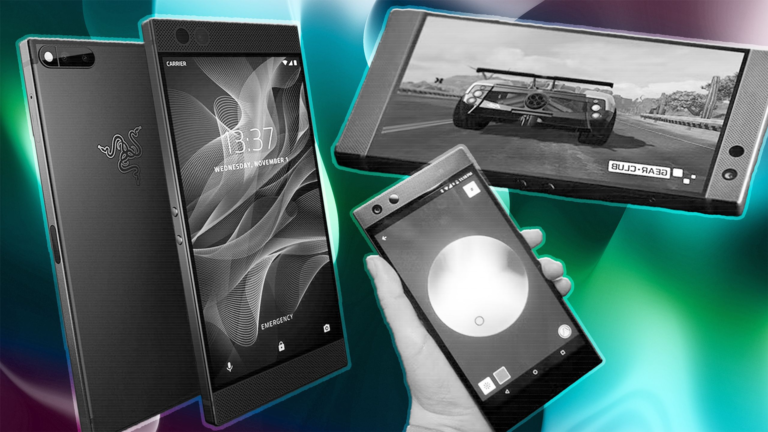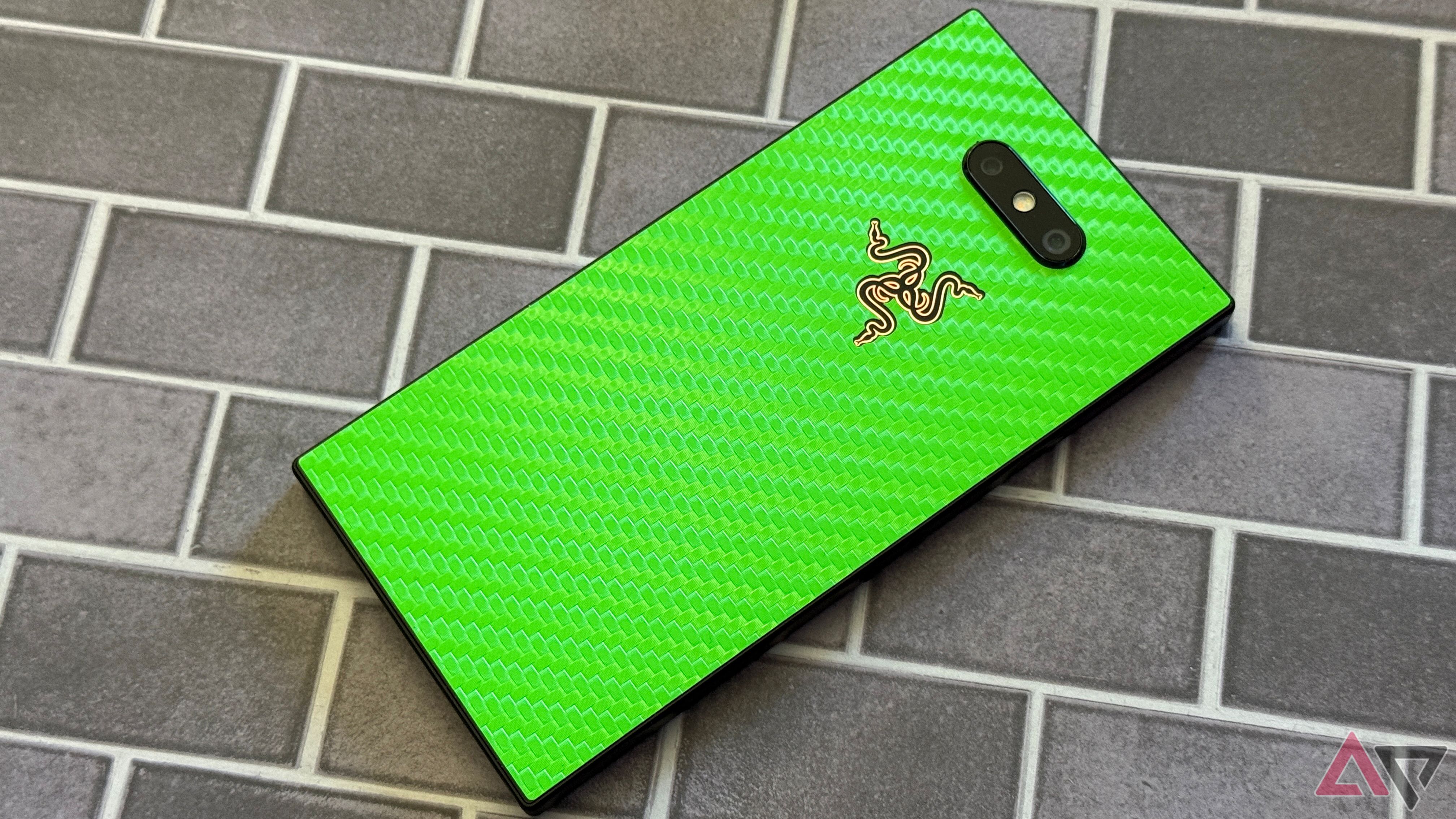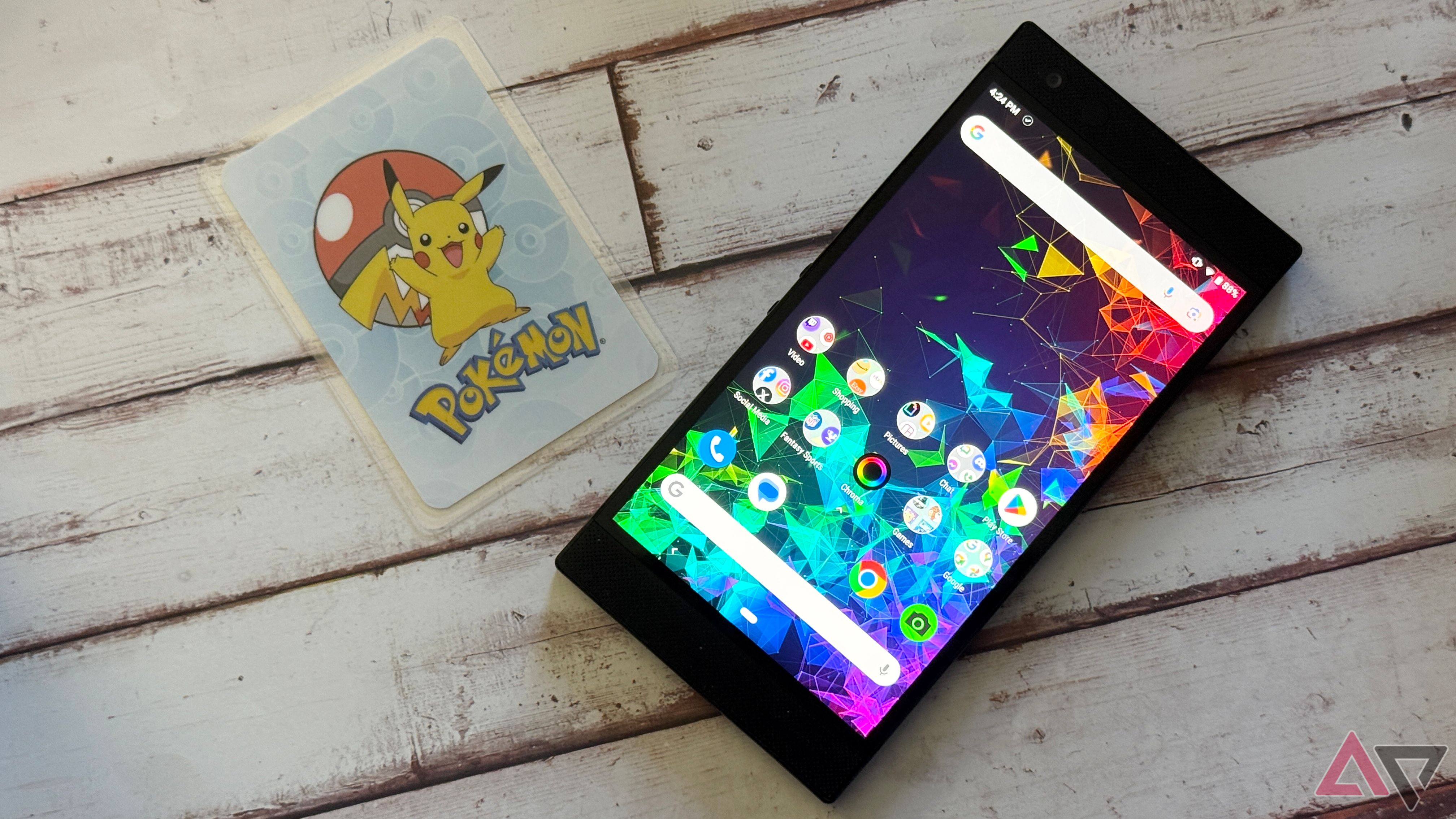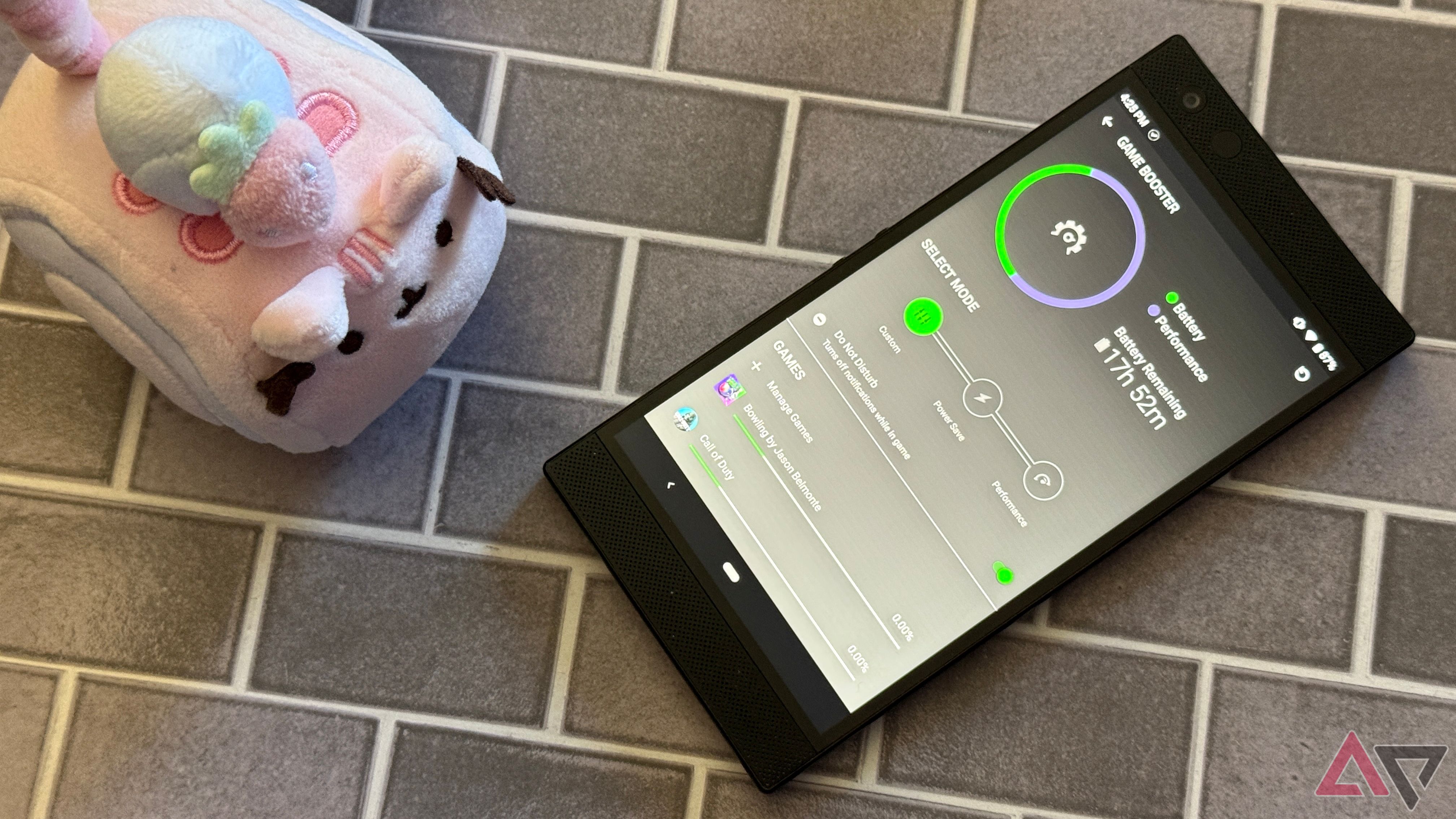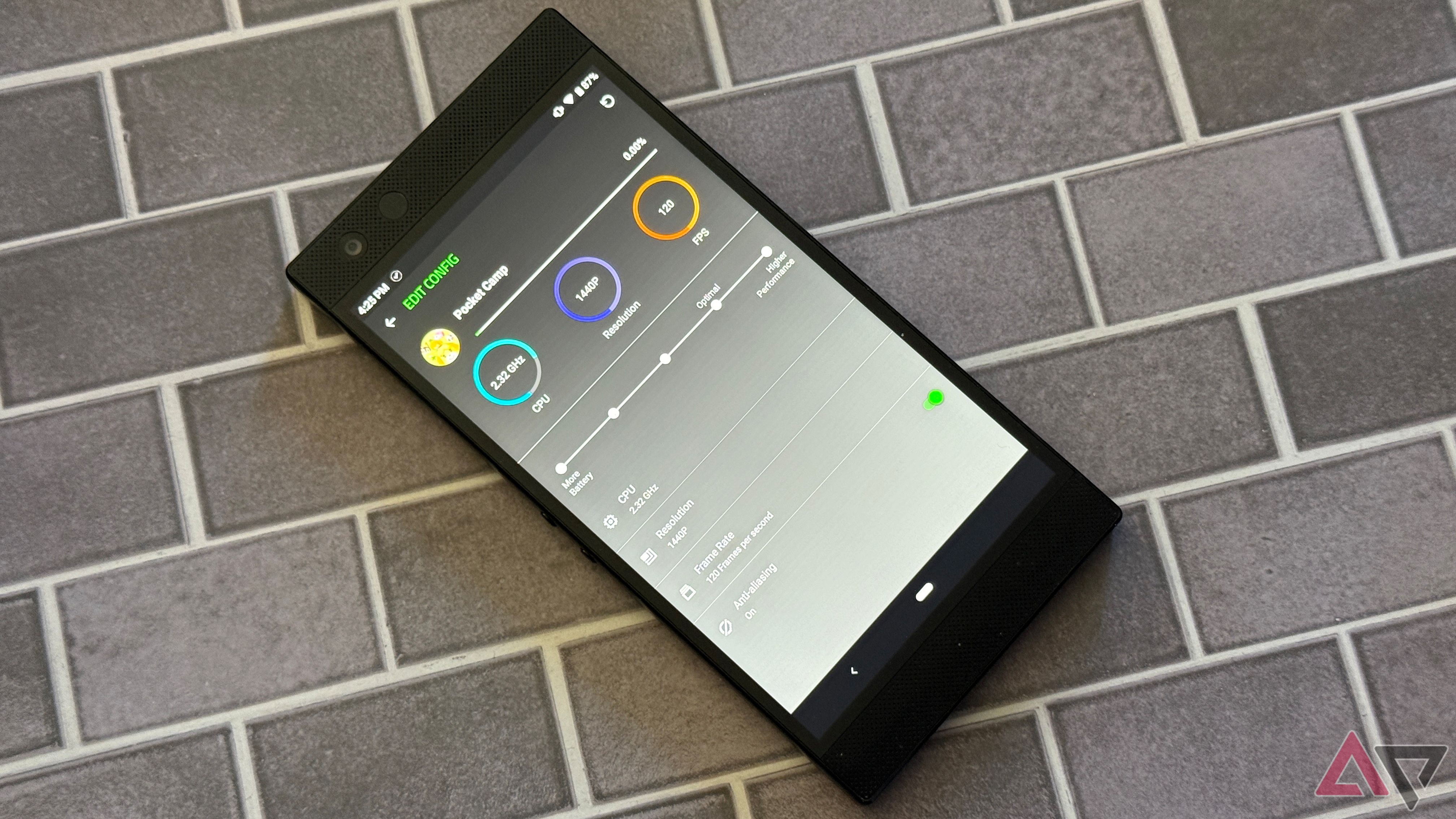It would take more than one article to cover all the problems with the Razer Phone and Razer Phone 2. Both devices had quality control issues, from speaker grills popping off to charging ports not working. My Razer Phone 2 only charged if the cable was held at a 43-degree angle between 6 and 8 p.m. In addition, software support could have been better. The company claimed it was working on an Android 10 release only to abandon development, marooning our devices on Android 9.
However, it wasn’t all bad. Despite its flaws, the Razer Phone ushered in an era of dedicated gaming phones, and some of its innovations are still used. Let’s look back at the Razer Phone to see how it shaped mobile gaming.
Hardware design with a purpose
Razer put functionality ahead of aesthetics
Razer wasn’t concerned about curved displays or slim bezels when it released the Razer Phone. Its distinctive design comes from the Nextbit Robin, which Razer acquired when it purchased Nextbit in 2017. The Razer Phones featured prominent speaker grills and a squared-off design, which is ideal for gaming.
The grills and thicker bezels let me securely grip the phone without blocking the display.
The grills and thicker bezels let me securely grip the phone without blocking the display. They also create a natural place for my thumbs to sit, avoiding accidental touches that would ruin my gaming experience. Asus and Xiaomi took it further with their gaming phones, adding shoulder buttons along the frame like on a console controller. It works well for gaming, and I’m glad Razer didn’t sacrifice performance and experience for what may have been a more visually appealing design.
A gaming phone is only complete with a bit of RGB, which Razer included on the back. It wasn’t just eye candy, though. You could program different colors to display various notifications from apps with the face down. Think of it as the fanciest notification LED you’ve ever seen.
Display meant for gaming
The Razer Phone included a 5.7-inch QHD LCD with a 120Hz refresh rate, which was impressive then and made games feel smooth and responsive. More importantly, the Razer Phone’s display had a 16:9 aspect ratio, perfect for games (and watching videos). I love 16:9 aspect ratios and hated it when companies moved away from them. It is taller in landscape orientation, giving you a wider field of view. I was disappointed when I saw that the Asus ROG Phone 8 Pro had a 20:9 aspect ratio. Companies should consider wider displays again.
Read our review
Asus ROG Phone 8 Pro: I’m not sure this is a gaming phone
Asus has changed the ROG Phone formula, and I’m not convinced it’s for the better
Vapor chamber cooling is relatively common (even the Samsung Galaxy S24 Ultra has one), but not in 2018 when the Razer Phone 2 was released. It was an excellent way to keep peak performance longer by keeping the device’s temperature down, which is perfect for marathon gaming sessions.
Software customization and plenty of it
Picking exactly the right settings for your games
The Razer Phone’s hardware design wasn’t the only reason it was good for gaming. Razer did a fantastic job on the software, giving us the tools needed to tweak game performance. Razer’s Cortex Games app allowed us to go game-by-game, adjusting CPU speed, frame rate, and resolution.
Pokémon Go used to have issues with high frame rate displays, but this wasn’t a problem on the Razer Phone. You could lock the game to 60fps. Reducing game resolution and CPU speeds also saved battery life, so less intensive games wouldn’t draw power they didn’t need. I loved having that level of control, and it felt like Android at its finest. Dedicated gaming phones are fantastic for enthusiasts who want the raw power of flagships but the customization settings that Samsung and Google took away.
I also remember using Razer’s Gamepad app on my Razer Phone 2 to map keys on a controller and find supported games. Nova Launcher was included as the default launcher on the Razer Phone, something I wish other manufacturers would consider. A little variety never hurt anyone.
I’m glad gaming devices carried on even if Razer didn’t
The Razer Phone’s story didn’t end well. The company gave up software support after only one OS upgrade for the Razer Phone 2, and we never got a Razer Phone 3. Parts started falling off the phones, and Reddit became filled with angry customers. However, I’m pleased companies still release dedicated gaming phones like the ROG Phone 8 Pro and the Red Magic 9S Pro. It’s important to have variety in the marketplace. While Razer doesn’t deserve a gold star, it did show that niche smartphones could work. I just wish mine would still charge.
